Showcase your commitment to safety and compliance with a spotless DOT inspection record. Rolon Mobile Truck Repair brings the inspection to you, minimizing downtime and ensuring your truck is always in top condition and ready to hit the road. Explore our Mobile DOT Inspection Services 1-6 below!
A well-structured and compelling truck driver resume is your passport to securing your dream truck driving job. It's your opportunity to showcase your skills, work experience, and dedication to potential employers. In this comprehensive guide, we'll delve into the intricacies of crafting a resume for a truck driver that stands out from the competition.
Understanding the Basics: Essential Components of a Truck Driver Resume
Before we dive into the specifics, let's revisit the fundamental elements of a truck driver resume
- Header:
- Contact Information: Clearly display your full name, phone number, professional email address, and LinkedIn profile (if applicable).
- Summary (Optional):
- A concise, impactful statement highlighting your key qualifications, truck driver skills for resume, and years of experience.
- Work Experience:
- Reverse Chronological Order: List your previous truck driving jobs, starting with the most recent.
- Job Titles: Clearly state your job titles.
- Company Names and Locations: Specify where you worked.
- Dates of Employment: Indicate your start and end dates for each position.
- Key Responsibilities: Use strong action verbs to describe your duties, such as delivering goods, vehicle maintenance, and route planning.
- Achievements: Quantify your accomplishments to showcase your impact, such as maintaining a clean driving record or achieving high customer satisfaction.
- Skills:
- Hard Skills: Highlight technical skills like operating commercial trucks, loading and unloading, adhering to DOT regulations, and time deliveries.
- Soft Skills: Emphasize interpersonal skills such as communication, customer satisfaction, problem-solving, and time management.
- Education and Certifications:
- CDL License: Clearly state your Commercial Driver's License (CDL) class (A, B, or C).
- Endorsements: Mention any endorsements you have (e.g., HAZMAT, tanker).
- Training Programs: List any relevant training programs or certifications.
- Additional Sections (Optional):
- Military Experience: If applicable, highlight relevant skills and experience.
- Volunteer Work: Showcase your community involvement and dedication.
- Awards and Honors: List any awards or recognitions you've received.
Formatting Tips for a Professional Resume
A well-formatted resume is visually appealing and easy to read. Consider these formatting tips:
- Choose a Clean Font: Opt for a professional font like Times New Roman, Arial, or Calibri.
- Use Consistent Formatting: Maintain a consistent font size, font style, and spacing throughout your resume.
- Utilize White Space: Ample white space improves readability.
- Use Bullet Points: Break up text with bullet points to enhance clarity.
- Proofread Carefully: Eliminate any typos or grammatical errors.
Leveraging Online Tools and Resources
To streamline the resume-writing process, consider utilizing online tools and resources:
- Resume Builders: Websites like Zety, Canva, and Resume.io offer templates and guidance to create professional resumes.
- Job Boards: Explore job boards like Indeed, and Jobot to find inspiration and sample resumes.
- Professional Organizations: The American Trucking Associations (ATA) and other industry organizations provide valuable resources and templates.
Common Mistakes to Avoid
To ensure your resume makes a positive impression, avoid these common pitfalls:
- Overusing Jargon: Keep your language clear and concise. Use big words only as appropriate, not to show off.
- Including Irrelevant Information: Focus on relevant skills and experiences. Your CPR class would look great on any resume!
- Using a Generic Template: Tailor your resume to the specific job. Using a similar template as entry-level candidates could get you treated as such.
- Neglecting Proofreading: Thoroughly proofread your resume to eliminate errors. Mistakes such as typos or misinformation will stand out as glaring issues, giving the impression that the candidate doesn’t care enough to proofread his own resume
- Overloading with Information: Keep your resume concise and focused. The manager needs succinct information, not a novel.
Beyond the Basics: Tips for a Compelling Truck Driver Resume
While structure and content are crucial, here are some additional tips to make your truck driver resume truly shine:
- Keep it concise: Aim for a one- to two-page resume, depending on your driving experience.
- Research the Company: Learn about the company's history, culture, and recent news. This will help you tailor your resume for truck driver positions.
- Load Security: Emphasize your experience in securing various types of loads and preventing cargo damage.
- Stay updated on industry trends to place yourself in the right mind frame:
- Technology: Stay informed about the latest technological advancements in the trucking industry, such as autonomous vehicles and ELDs (Electronic Logging Devices).
- Regulations: Keep up-to-date with DOT regulations and industry standards.
- Highlight safety: Hiring managers prioritize safety in the trucking industry.
- Emphasize your clean driving record and total commitment to safety.
- Mention any safety certifications you've obtained (e.g., HAZMAT, certification).
- Highlight your knowledge of defensive driving techniques and how they've contributed to your safety record.
- Showcase your ability to follow DOT regulations and company policies.
- Quantify your accomplishments: When possible, use numbers to quantify your achievements. This will make your resume more impactful.
- For each job entry, use strong action verbs to describe your responsibilities and accomplishments. Quantify these achievements whenever possible.
- Examples: “Delivered goods safely and on time, maintaining a 99% on-time delivery rate,” or “Quantify your ability to improve fuel efficiency, such as reducing fuel consumption by X%.”
Highlighting Soft Skills
While hard skills like operating commercial vehicles are essential, soft skills can significantly enhance your profile. Highlight truck driver skills for resume, such as:
- Problem-solving: Describe instances where you've overcome challenges on the road or resolved issues with cargo. These are perfect examples of problem-solving on the fly.
- Time management: Emphasize your ability to meet tight deadlines and manage long hours.
- Communication: Highlight your effective communication skills, both verbal and written.
- Customer service: Showcase your ability to interact professionally with clients and colleagues.
- Adaptability: Highlight your flexibility in handling changing schedules and unexpected situations. Showcase your ability to work independently and as part of a team.
Consider a Portfolio
- Document your achievements: If applicable, create a digital portfolio to showcase your accomplishments, such as safety awards, certificates, and letters of commendation.
- Highlight your skills: Use your portfolio to further demonstrate your technical skills, problem-solving abilities, and attention to detail.
Tailoring Your Resume to Specific Job Requirements
To maximize your chances of landing an interview, tailor your resume to each specific job application. The easier you make it for someone to peruse your resume and decide you’re a quality candidate, the better! Consider the following strategies:
- Keyword optimization:Identify keywords from the job description and incorporate them strategically throughout your resume, such as truck driver resume examples, delivery truck driver resume, and truck driver responsibilities resume.
- Highlight relevant skills: Emphasize the skills most pertinent to the job, even if they're not directly related to truck driving.
- Customize your summary: Adjust your summary statement to align with the specific job requirements to make it clear how good of a fit you are for the gig.
- Technology proficiency: Showcase your ability to use electronic logging devices (ELDs), GPS systems, and other trucking technologies.
Crafting a Powerful Cover Letter
While a resume is essential, a well-written cover letter can further elevate your job application. This allows for the hiring manager to gain more knowledge about you beyond just previous jobs or experience, and allows your personality to show through the resume. In a pile of applications, the one with the cover letter stands out as a more industrious candidate. Here's how to craft an effective cover letter:
- Address it to a specific person: If possible, address your letter to a specific hiring manager. This can make you come across as diligent and attentive.
- Express enthusiasm: Convey your genuine interest in the company and the position. Connect the job with a positive trait rather than the money or benefits it provides.
- Hook the reader: Start with a strong opening sentence that grabs their attention.
- Conclude with a strong call to action: Thank the reader and reiterate your interest in an interview.
Be Patient and Persistent
There will be a waiting period once the resume is received. Don’t forget that you’re not the only applicant, and there are typically always those who have more experience than you. The choice of candidate is dependent on many factors, and instant gratification in the job market is rarely guaranteed.
- Multiple applications: Don't get discouraged if you don't hear back immediately.
- Follow up: Politely follow up with potential employers to express your continued interest.
Crafting a Great Truck Driver Resume Conclusion
By following these guidelines and incorporating the tips provided, you can create a compelling truck driver resume that sets you apart from the competition and helps you land your dream job. Here are some additional resources to help you during your resume-writing journey:
- Job boards: Many job boards like Indeed and Trucker Path include resume writing tips and samples specifically for truck drivers.
- Professional organizations: The American Trucking Associations (ATA) website offers resources and guidance for truck drivers, including resume writing, at the American Trucking Associations Website.
Land the Job, Leave the Repairs to Us
Job hunting is stressful enough. Rolon Mobile Truck Repair takes the hassle out of semi-truck maintenance with convenient mobile on-site service. Focus on your career, not on finding a repair shop. We are also available 24/7 to those within Sanford, FL and surrounding areas. Contact us today!
FAQS
- How to list skills on a truck driver resume?
To list skills on a truck driver resume, categorize them into hard skills (e.g., vehicle maintenance, load security) and soft skills (e.g., time management, communication).
- How do I write a resume for a truck driver?
To write a resume for a truck driver, start with a header, add a summary, list work experience in reverse chronological order, and highlight relevant skills, education, and certifications.
- How to make a truck driver resume?
To make a truck driver resume, use a professional resume template, include relevant truck driver responsibilities, and tailor the content to match the job requirements.
- What do you call a truck driver on a resume?
On a resume, you can refer to yourself as a commercial truck driver, delivery truck driver, or CDL truck driver, depending on your specific experience.
- What is a good objective for a truck driver resume?
A good objective for a truck driver resume should highlight your skills, dedication to safety, and desire to contribute to the company's success, such as: "Seeking a truck driving job where I can leverage my CDL certification, safe driving record, and commitment to on-time deliveries."





